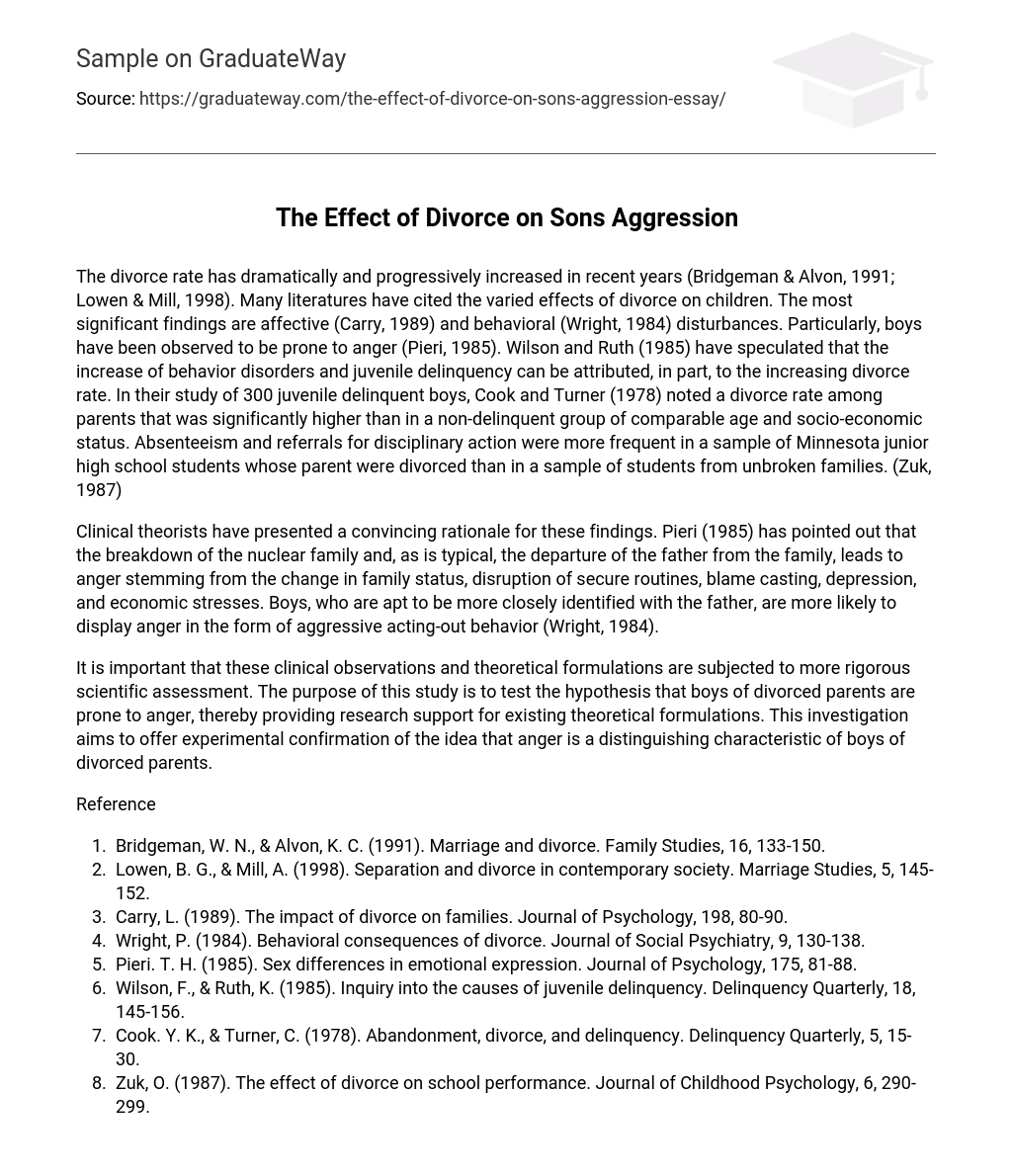The divorce rate has significantly increased in recent years (Bridgeman & Alvon, 1991; Lowen & Mill, 1998). Numerous studies have explored the various effects of divorce on children. The most noteworthy discoveries revolve around emotional disturbances (Carry, 1989) and behavioral problems (Wright, 1984). Particularly, boys have shown a susceptibility to anger (Pieri, 1985). Wilson and Ruth (1985) have theorized that the rise in behavior disorders and juvenile delinquency can be partly attributed to the growing divorce rate. Cook and Turner’s (1978) study of 300 delinquent boys revealed a significantly higher divorce rate among parents compared to a non-delinquent group of similar age and socio-economic status. A sample of Minnesota junior high school students with divorced parents exhibited more absenteeism and disciplinary referrals compared to students from intact families (Zuk, 1987).
Clinical theorists have provided a persuasive explanation for these results. Pieri (1985) has indicated that the decay of the nuclear family and the father’s departure from the family, as commonly seen, causes anger due to the change in family status, disturbance of stable routines, casting of blame, depression, and financial strains. Boys, who typically have a stronger identification with the father, are more prone to expressing anger through aggressive behavior (Wright, 1984).
It is crucial to subject these clinical observations and theoretical formulations to a more rigorous scientific evaluation. The aim of this study is to verify the hypothesis that boys from divorced families have a tendency towards anger, thus offering research backing for existing theoretical formulations. The purpose of this investigation is to provide experimental validation of the notion that anger is a defining trait of boys from divorced families.
Reference
- Bridgeman, W. N., & Alvon, K. C. (1991). Marriage and divorce. Family Studies, 16, 133-150.
- Lowen, B. G., & Mill, A. (1998). Separation and divorce in contemporary society. Marriage Studies, 5, 145-152.
- Carry, L. (1989). The impact of divorce on families. Journal of Psychology, 198, 80-90.
- Wright, P. (1984). Behavioral consequences of divorce. Journal of Social Psychiatry, 9, 130-138.
- Pieri. T. H. (1985). Sex differences in emotional expression. Journal of Psychology, 175, 81-88.
- Wilson, F., & Ruth, K. (1985). Inquiry into the causes of juvenile delinquency. Delinquency Quarterly, 18, 145-156.
- Cook. Y. K., & Turner, C. (1978). Abandonment, divorce, and delinquency. Delinquency Quarterly, 5, 15-30.
- Zuk, O. (1987). The effect of divorce on school performance. Journal of Childhood Psychology, 6, 290-299.





